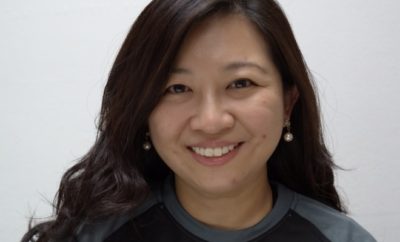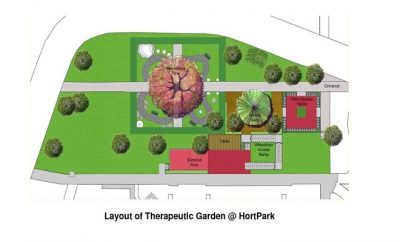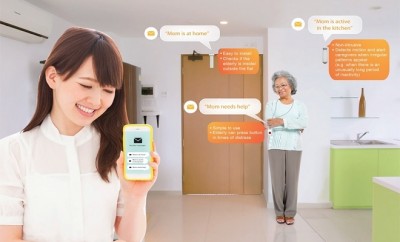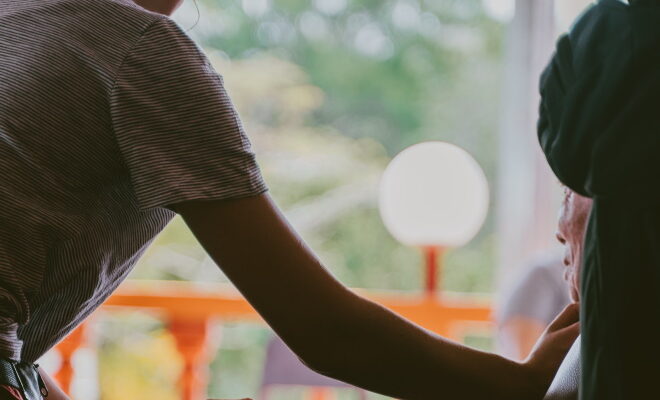
The Gen XY Lifestyle
Millennial Caregivers, Are You Taking Care Of Yourself Too?
In ageing Singapore, there are more than 210,000 caregivers and this number is growing as more millennials become caregivers to their parents. As they come to terms with the reality of their parents growing older, they are also learning how to balance caring for themselves while caring for their loved ones.
Flexible work from home arrangements have become more prevalent in Singapore as a result of the COVID-19 pandemic. However, this has not lightened caregivers’ duties, where their support tends to be required around the clock. Caregivers need to keep up their strength and be advocates for their own health to provide quality care in turn.
If you are a caregiver to a loved one in your life, taking care of yourself is not a selfish act – it’s essential.
Why Muscle Health is Important
The notion of staying strong is immensely applicable to caregiving as various responsibilities require physical strength and significant use of the muscles, especially when lifting or transferring loved ones who are less mobile.
Muscle health is also integral to our strength, energy, and immunity. While we often take our muscle health for granted and hope that our strength will stay the same over time, the reality is that muscle mass loss can often come with age. After the age of 30 years, adults can face muscle loss of 3 percent to 5 percent per decade. From 40 years onwards, people can lose about 8 percent of muscle loss every decade.
Singaporeans enjoy one of the longest life spans (83 years) globally, but a lot of time – especially in the later years – can be spent coping with age-related health issues, of which musculoskeletal problems are one of the most frequent. According to the SHIELD (Strengthening Health In Elderly Through Nutrition) study conducted by Changi General Hospital, SingHealth Polyclinics and Abbott, 4 in 5 older adults in Singapore who are at risk of malnutrition have low muscle mass.
What We Can Do To Keep Up Our Strength
The good news is it is possible to slow down and prevent age-related muscle mass loss. Nutrition is the foundation for us to live our best lives. By making changes to nutrition and adding exercise to our routines, we can keep our muscle strength for much longer.
Consume more dietary protein.
Our protein requirements increase as we age. To build muscle health, add foods rich in protein as part of a healthy and balanced diet. This increased nutrient requirement can be met by everyday ingredients packed with protein, such as chicken, seafood, eggs, nuts, beans or tofu.
Consider oral nutritional supplements with HMB.
Older caregivers who are not eating well can consider supporting their muscle health by consuming oral nutritional supplements with HMB (beta-hydroxy-beta-methylbutyrate). HMB is a naturally-occurring compound which has been shown to be effective in preserving muscle mass, but it can be difficult to get enough through food alone which is why it can be beneficial to look for a nutritional supplement that includes HMB and protein for muscle health.
Older adults who consumed an oral nutritional supplement containing HMB were clinically shown to have improved strength and experienced significant improvement in physical function, nutritional status and health outcomes, according to findings from the SHIELD study.
Get ample vitamin D.
Vitamin Dcan contribute to improving muscle strength, so head outdoors for some sunlight. Vitamin D can also be derived from nutrition. Good food sources to increase vitamin D intake include fatty fish and mushrooms, fortified soy milk and fortified yogurt.
Engage in regular exercise.
In addition to promoting muscle health, regular exercise helps produce endorphins that trigger positive feelings in the body.
An ideal exercise plan for older adults features simple strength training such as resistance band exercises, tai chi or pilates, and aerobic activity like brisk walking and leisure dancing, according to the latest National Physical Activity Guidelines launched by the Health Promotion Board and Sport Singapore.
Beyond dedicated workouts, even incorporating movement into your everyday routine can be helpful. Carry a grocery bag instead of using a trolley when going to the supermarket or indulge in a 5-minute dance break to uplift your day. Every move counts!
Check Your Muscle Strength
Wondering if you may be at risk of poor muscle health? Try the five-times sit-to-stand test which can be done at home. Fold your arms across your chest and transfer from a seated to a standing position five times while timing yourself to see how long it takes you to complete the repetitions.
Then, use the Muscle Age Calculator to check your muscle age. This tool matches your sit-to-stand test time to the average test time of biological age groups. A 30-year-old may have a muscle age in the 50s if they take longer than average to complete the test, which could be a sign of them losing muscle strength.
Self-Care Is Not Selfish
Maintaining a positive attitude as a family caregiver may be challenging at times, especially when responsibilities seem overwhelming. Sustaining a strong mindset and maintaining good muscle health can go hand in hand as consuming good nutrition and being physically healthy can contribute to overall well-being.
It may be second nature for caregivers to put their loved ones first. But caring for yourself is equally important to enable you to provide quality care for others.
Start now to check your muscle health and improve your diet and exercise habits, so that you can live a healthier and fuller life and keep up your strength for your loved one. While giving care, don’t forget to take care of yourself too – especially your muscle health.
This article has been contributed by Andrea B. Maier, Oon Chiew Seng Professor in Medicine, Healthy Ageing and Dementia Research, Co-Director Centre for Healthy Longevity, National University of Singapore
ENSURE® Life with HMB provides complete and balanced nutrition with HMB plus protein that support muscles, to help adults in Singapore to stay strong and live an active life. Readers may register for a free sample here: https://abbottfamily.com.sg/brands/ensure/ensure-life/free-sample
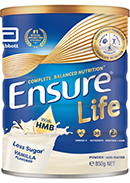
Photo by Vince Fleming on Unsplash and by Ensure Life.

